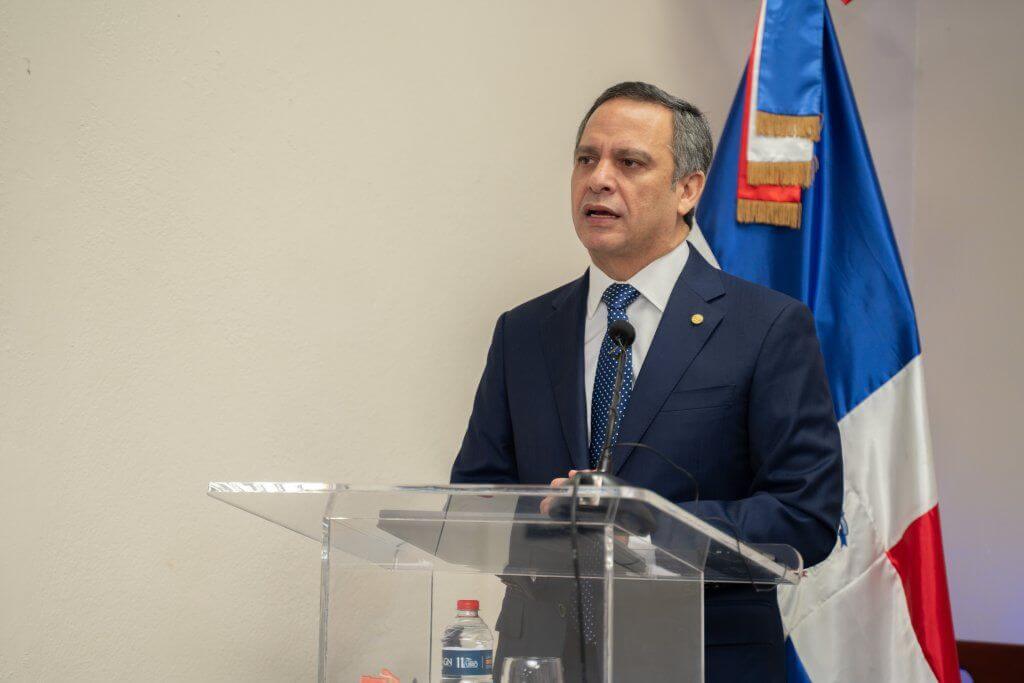The presiding judge of the Supreme Court of Justice (SCJ), Henry Molina, cited this Tuesday the advances of justice while participating as a speaker at the Dominican History Book Fair, organized by the General Archive of the Nation.
The president of the Judicial Power Council (CPJ) also highlighted the increase in public confidence in the justice system, the significant reduction in judicial delays and the application of digital technology as part of the progress made in the process of transformation of this branch of government.
In pondering the contribution of the books to the historical evolution of Law and Justice, Molina reported that confidence in the judicial system increased eight positions in the global ranking, according to the Rule of Law Index of the international civil society organization WorldJustice Project(World Justice Project).
During his presentation "Justice and Dominican Law in time: towards the effective guarantee of the dignity of persons", he said that the implementation of the Cassation Law No. 02-23, of January 2023, has been a key factor in the improvement of the judicial delay, which has reduced the processing time in the SCJ from two years to less than five months.
"This has not only accelerated the processes, but has also strengthened legal certainty by unifying jurisprudence and providing the system with greater coherence and predictability," he said.
He also indicated that the Judicial Branch promotes non-adversarial methods of conflict resolution, to change the litigious tradition that congests the courts, inspired by models of judicial systems where it has been demonstrated that only a minority of cases go to trial.
In this sense, he stated that the role of the academy is fundamental to train the lawyers of the future, understanding that the practice of law should prioritize agreement and mediation over prolonged litigation.
On the other hand, he emphasized that digitalization has been a crucial driver in the transformation of the Judicial Branch, and stated that one hundred percent of judges and a large number of judicial servants have implemented electronic signatures in their documents, which he said has increased the reliability and authenticity of the processes.
He invited them to use the services of the Digital Access portal and generate all their transactions 100% digitally, which he said will facilitate their procedures, which also allows for continuous improvement and constant review of progress.
Molina stressed that justice is a fundamental pillar of society, and assured that, with the joint effort of all actors, progress will continue to be made towards a fairer and more equitable judicial system.
"Only with the collaboration of all of us will we be able to achieve a justice system that guarantees the dignity of people, that reinforces legitimacy and confidence in our democratic system, and that promotes the development of our nation," he said.
He described transparency as vital to maintain public confidence, which is why the Judicial Branch made available to society the Judicial Observatory, which allows detailed monitoring of trends in justice.
He also said that the updating of the Code of Ethics and the implementation of the Judicial Ladder are fundamental to ensure that justice is administered with independence, integrity and transparency.
"Both tools add certainty and objectivity in decision making related to the actions of judges and servants. This commitment to ethics is essential to maintain society's confidence in our judicial system," he said.
Present at the activity were the director of the General Archive of the Nation, Roberto Cassá; the deputy director José Vilchez; and for the Judicial Branch, the general director of Administration and Judicial Careers, Jhonattan Toribio; the general secretary of the SCJ, César García Lucas; the director of the National School of the Judiciary, Ángel Brito; the general technical director, Gervasia Valenzuela; and the general coordinator of Communication and Public Affairs, Javier Cabreja.
About the Fair
The 11th Dominican History Book Fair, to be held October 14-18, includes a varied program of activities ranging from exhibitions and presentations of new publications, to conferences, workshops, panels and the screening of documentaries.

















